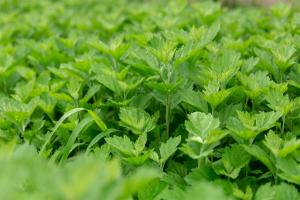Why is Tap Water Bad for Plants?
Tap water, or the water that comes out of the faucet in your home, is treated with chemicals to make it safe for human consumption. While it may be fine for us to drink, tap water can be harmful to plants in a number of ways. We'll explore why tap water is bad for plants and what you can do about it in this article.
Chlorine in Tap Water
One of the most harmful chemicals in tap water for plants is chlorine. Chlorine is added to tap water as a disinfectant to kill harmful bacteria and viruses. However, it can also harm the beneficial bacteria and fungi that live in soil and help plants grow. Chlorine can also damage plant cells and tissues, making them more vulnerable to diseases and pests.
Hard Water and Salts
Tap water can also contain high levels of minerals and salts, particularly if you live in an area with hard water. These minerals and salts can build up in the soil and damage plant roots, leading to poor growth and development. Some plants are more sensitive to these minerals than others, so you may notice some plants in your garden are more affected than others.
Chemicals and Pesticides
In addition to chlorine, tap water can also contain other chemicals and pesticides. These can accumulate in the soil and harm beneficial bacteria and fungi, as well as other insects and animals in the soil. Additionally, some of these chemicals may be harmful to us as well if we consume plants that have absorbed them.
What Can You Do?
If you want to avoid using tap water on your plants, there are a few things you can do. The easiest option is to collect rainwater and use it to water your plants. Rainwater is free of chemicals and minerals, making it perfect for plants. You can collect rainwater in a barrel or bucket and use it as needed.
If collecting rainwater isn't an option, you can try filtering your tap water to remove the chemicals and minerals. There are a number of different filters available, from simple activated carbon filters to more complex reverse osmosis systems. Keep in mind that these filters can be expensive, so it may not be feasible to use them for all your plants.
Another option is to let your tap water sit out for a day or two before using it on your plants. This can allow the chlorine and other chemicals to evaporate, leaving the water safer for plants. However, this method won't remove any minerals or salts that may be present in the water.
The Bottom Line
While tap water is safe for human consumption, it can be harmful to plants due to the chemicals and minerals that may be present. To keep your plants healthy, consider collecting rainwater or filtering your tap water. You can also let your tap water sit out for a day or two to allow the chemicals to evaporate. By taking these steps, you can ensure your plants get the water they need without any harmful side effects.

 how many times do yo...
how many times do yo... how many planted tre...
how many planted tre... how many pine trees ...
how many pine trees ... how many pecan trees...
how many pecan trees... how many plants comp...
how many plants comp... how many plants can ...
how many plants can ... how many plants and ...
how many plants and ... how many pepper plan...
how many pepper plan...































